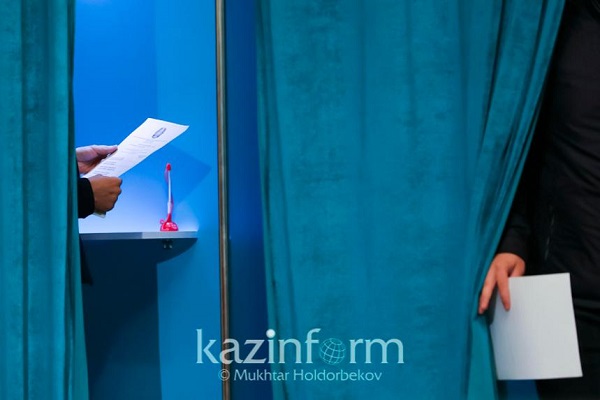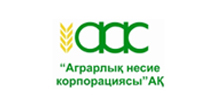News
Elections in Kazakhstan: history and prospects

ASTANA. KAZINFORM - Kazakhstan prepares to hold an early presidential election on November 20, as declared by the decree signed by President Kassym-Jomart Tokayev on September 21. More about the history of elections in Kazakhstan, and what the upcoming election means for the country’s political system is in the latest article of Kazinform.
On September 21, President Tokayev announced the date of a presidential election and confirmed he would run for the presidential office.
«This election is launching an electoral cycle that will radically reset the entire political system. This will allow us to continue to focus on solving long-term tasks to ensure sustainable economic growth and improve citizens' well-being and quality of life. In my Address, I announced several large-scale socio-economic measures that will be implemented in the near future. The Election Manifesto, which I will soon present to the public, will outline new initiatives aimed at achieving socio-economic progress,» he said in a statement.
Tokayev also promised the election campaign will be conducted in strict accordance with the law, it will be held fairly, openly, and with the broad participation of domestic and international observers.
In his September 1 address to the nation, Tokayev announced an initiative, unexpected for many, proposing to limit the president’s tenure to one seven-year term, instead of the previous two five-year terms and prohibit re-election. Until 2007, the term length was seven years, which was reduced to five years by the former President.
The constitutional amendments were endorsed by the Kazakh Parliament and signed by President Tokayev on September 17, a few months after the nation voted for a package of constitutional amendments on June 5 that are expected to accelerate the push for political reforms.
Addressing the public in Turkistan region during his working visit to the region on September 27, Tokayev explained why the country needs this initiative, unprecedented for the region.
«I believe that this reform is a bold step towards democracy. Despite certain risks, I am absolutely sure that this decision is necessary for the sake of the bright future of our people. One may wonder what the reforms are for. The fact is that the office of the President should not be held by one person for a long time. Whether in the world or our country, if only one person holds the highest office for a long time, this situation does not do credit to the country or its leader,» said Tokayev as he addressed the public in Turkistan.
Setting up a precedent like this will «open the way for honest and talented politicians.» «In general, people understand the essence of our plan to change the political system. To continue this work, we need a mandate of trust in accordance with the renewed Constitution. That is why an early presidential election has been scheduled for November 20. We will conduct this campaign honestly and transparently in accordance with the law,» said Tokayev.
History of elections in Kazakhstan
In Kazakhstan, presidential elections were held six times - in 1991, 1999, 2005, 2011, 2015, and 2019, and in fact, all of them were ahead of schedule. November 20 elections were supposed to be held in 2024.
Kazakhstan had its first national presidential election on December 1, 1991, when the only candidate for the post of head of state was Nursultan Nazarbayev, who received 98.78 percent of the votes. In April 1995, a national referendum voted (95.46 percent of voters) for the extension of Nazarbayev’s term until December 1, 2000.
The new constitution adopted on August 30, 1995, envisioned that the president is elected by popular vote for five years and specified that candidate must be a citizen of Kazakhstan by birth, be at least 35 years old and not older than 65 years, be fluent in the state (Kazakh) language, and live in Kazakhstan for not less than 15 years.
The second elections in Kazakhstan were on January 10, 1999, and they were supposed to be held in December 2000, but on October 8, 1998, Kazakhstan's parliament voted to bring forward presidential elections. It was shortly after Nazarbayev signed a series of constitutional amendments that eliminated the 65-year age limit, increased the president's term from 5 to 7 years, and removed the 50 percent minimum participation barrier for presidential elections. Nazarbayev won these elections with more than 79 percent of the vote.
In the third presidential election on December 4, 2005, Nazarbayev got 91.15 percent of the votes, with a reported turnout of 77.1 percent.
On February 2, 2011, at a joint session of the Kazakh Parliament, an amendment to the Constitution was adopted that gave the president the right to call early presidential elections.
A month later, on April 3, 2011, the nation saw its fourth presidential elections, which were originally scheduled for 2012. Nazarbayev was re-elected as president for a fourth term, winning 95.55 percent of the votes. Second in the presidential race was senator Gani Kasymov (1.94 percent).
In early presidential elections on April 26, 2015 (originally scheduled for 2016), Nazarbayev won with 97.8 percent of the vote, going for a fifth term in office.
The last elections in Kazakhstan took place in June 2019, three months after Nazarbayev had unexpectedly stepped down.
Tokayev won the elections with nearly 71 percent of the vote competing against six candidates, including first woman candidate Daniya Yespayeva.
Upcoming elections
The next presidential election is scheduled for November 20. The nomination of candidates began on September 23 and will last until October 11. There has been no nomination submitted so far, as parties are expected to make decisions during their meetings to be held soon.
Amanat party announced they will hold their meeting on October 6, while other parties have not yet disclosed the dates.
The verification of the candidate's compliance with the requirements of the Constitution and the constitutional law on election and the collection of signatures will take place from September 23 to October 21.
Election campaigning will last for 28 days - from 6 p.m. on October 21 to November 18.
November 19 will be the day of silence when campaigning is banned, and on November 20, citizens will head to polling stations to vote for the next President.
Tabulation of preliminary results will be held on November 21-22, whereas the establishment of the results and registration of the elected President will take place before November 27.
Who can run for the presidential office?
The candidate must have Kazakh citizenship by birth, higher education, and be a resident of Kazakhstan for the last 15 years. He or she must be at least 40 years old, have experience in public service or in elected positions of at least 5 years, and be fluent in the state (Kazakh) language.
Why does the upcoming election matter?
One of the key reasons explaining the move was that a public mandate needs to be renewed to enable the continuation of reforms. At a time when the world witnesses rising confrontations and tensions, as well as a slowdown in economic development, renewing public trust becomes important more than ever.
State Counsellor Yerlan Karin said the presidential election on November 20 launches a new electoral cycle.
«The initiative to hold presidential elections fully corresponds to the logic of the political transformations of the last three years. The constitutional reform fixed a new, more balanced order of interaction between the branches of power. And to launch a new model, it is necessary to restart the entire political system, including such key institutions of the state as the President, Parliament, Government, and maslikhats,» he wrote on his Telegram channel.
According to him, there was a sufficient time not only for wide public discussion of the campaign but also for preliminary preparation of potential participants. «According to the law, elections are held within two months from the date of their appointment, but in fact, the entire campaign will last three months,» he added.
Political expert Daniyar Ashimbayev said it is a rare situation for the country when the electoral schedule is announced in advance, both for the presidential elections, and parliamentary elections.
«The situation changed somewhat along the way due to the amendments to the Constitution introduced at the initiative of the deputies, although the President had originally intended to initiate them after the elections. But in this case, the parliament used the thesis voiced by Tokayev earlier that he was not going to run for presidency more than twice,» said Ashimbayev.
He also stressed the good political positions of Tokayev.
«He has shown himself this year as a tough and decisive leader, initiated large-scale political reforms, became in a certain sense not a successor, but the winner of the Old Kazakhstan. An extensive international program even in recent weeks (visits of the Pope, the chairman of the People's Republic of China, the Congress of Religions, the SCO summit, and the visit to New York) showed the great influence of the President in the world,» said the expert.
If elected, it would be the last term for Tokayev.
«By making the new term his last, Kassym-Jomart Tokayev removes the question of personal ambitions for a lifetime of rule and gets an opportunity to deal with the planned transformations of the country and society, which are in desperate need of serious modernization,» he said.
Less than two months before the elections, the political season is expected to be rich, and it remains to be seen whether sweeping political reforms will turn into a reality.
Written by Assel Satubaldina




